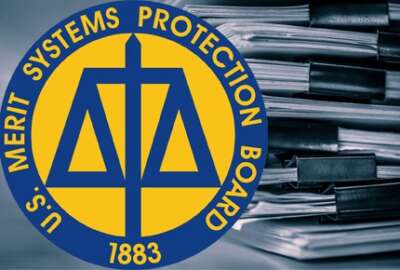

Had the outcome gone differently, the case could have had potentially precedential consequences for federal employees, according to the Office of Special Counse...
A federal appeals court has overturned a ruling from a Merit Systems Protection Board administration judge — part of a complex case that involved multiple agencies and could have upended years of whistleblower precedent for federal employees.
In its ruling last week, the U.S. Court of Appeals agreed with both the Office of Special Counsel — and ultimately the MSPB itself — that an administrative judge improperly ignored certain protected disclosures under federal whistleblower law when considering a case from an employee at the Department of Veterans Affairs.
Had the outcome gone differently, the case could have had potentially precedential consequences for federal employees, according to OSC, which filed an amicus brief on behalf of the VA employee last summer.
OSC at the time said the board’s original decision left “federal employees uncertain about their individual right of action appeal rights under civil service laws and vulnerable to retaliation explicitly prohibited by the statute.”
The details of the case involved Dr. Debra Tao, a pharmacist who had worked for roughly 30 years at the Department of Veterans Affairs.
Tao said the agency suspended and proposed firing her in retaliation for making several protected disclosures under federal whistleblower law — and for her role in disclosing information to OSC, filing a complaint with VA’s still-relatively-new Office of Accountability and Whistleblower Protection, filing an unfair labor practice complaint with the Federal Labor Relations Authority and for testifying in coworkers’ MSPB and equal employment opportunity proceedings.
She filed a complaint with OSC back in 2018. OSC closed its inquiry and suggested Tao seek corrective actions by filing an appeal with an MSPB administrative judge, which she did later in 2018.
Tao raised a total of 16 actions with the MSPB, and the administrative judge addressed seven of them. The judge ultimately dismissed the case, arguing it didn’t have jurisdiction to address Tao’s appeal because she hadn’t effectively proved that she had made reasonable protected disclosures under part of the Whistleblower Protection Act.
The judge’s decision became final last spring, and Tao appealed the MSPB decision with the U.S. Court of Appeals for the Federal Circuit.
Under the Whistleblower Protection Act, federal employees can seek corrective action from the MSPB for any personnel action they believe was taken in retaliation for both disclosing acts of waste, fraud and abuse — and for “exercising a right to complain.”
In its amicus brief, OSC said the MSPB administrative judge “committed reversible error” by failing to recognize Tao’s complaints to the special counsel, a U.S. senator and others as “protected disclosures” under federal whistleblower law.
The judge’s initial legal analysis, OSC said, contradicted longstanding whistleblower laws and bucked with Congress’ intent to give federal employees broad appeal rights against retaliation for both making whistleblower disclosures and for participating in certain whistleblowing activities.
MSPB ultimately agreed and conceded its administrative judge had erred with respect to five of Tao’s 16 actions.
The federal court of appeals agreed as well, and, given the magnitude of the administrative judge’s errors, ordered a new MSPB judge for Tao’s case.
Under more usual circumstances, Tao could have asked the full board to review the initial decision from the MSPB administration judge.
But the board has lacked a quorum for more than four years and hasn’t had a single member for the last two, meaning there’s no one available to rule on petitions for review.
Rather than wait for the Senate to restore a quorum at the board, attorneys have said they’ve seen more employees like Tao take their cases to the federal appeals court.
As of the end of April, there are 3,241 petitions for review awaiting action from the board, according to MSPB data.
The Biden administration has taken an initial step to restore a quorum at the board. President Joe Biden nominated Cathy Harris, an employment attorney and co-manager at the Kator, Parks, Weiser & Harris law firm, as MSPB chairman.
But the MSPB needs at least two members to restore a quorum and three to fill the board, and Biden hasn’t yet appointed additional members to those seats.
While the MSPB and its administrative judges have been issuing decisions and agency attorneys have been hard at work preparing for the eventual restoration of a quorum, the historic situation has prompted Congress and good government groups to pursue alternative legal options beyond the board for federal employees.
House Oversight and Reform Committee Chairman Carolyn Maloney (D-N.Y.) introduced a bill last week that would give federal employees facing whistleblower retaliation another avenue to pursue their cases.
Copyright © 2024 Federal News Network. All rights reserved. This website is not intended for users located within the European Economic Area.
Nicole Ogrysko is a reporter for Federal News Network focusing on the federal workforce and federal pay and benefits.
Follow @nogryskoWFED


